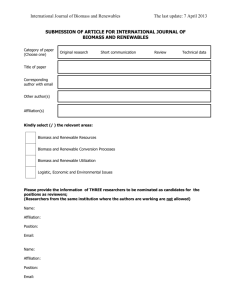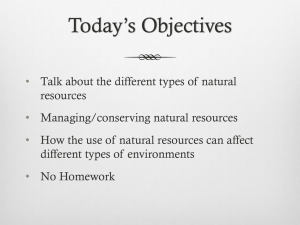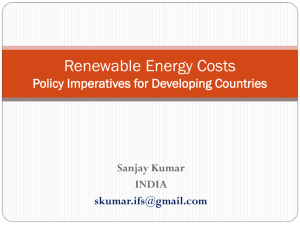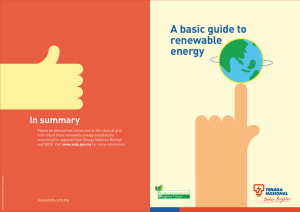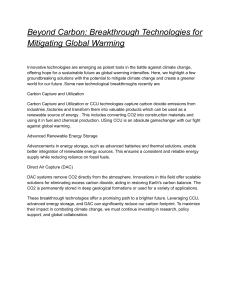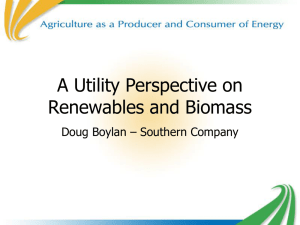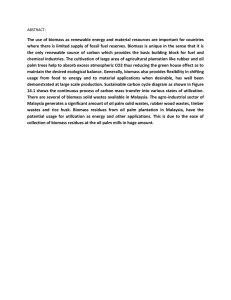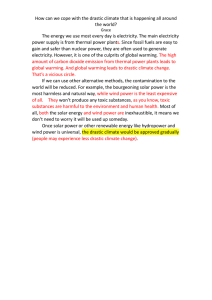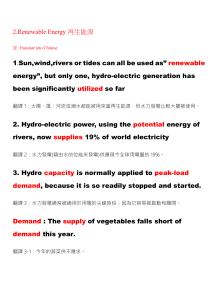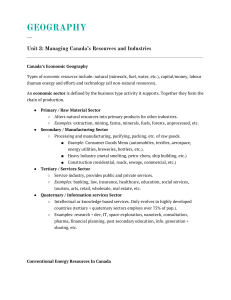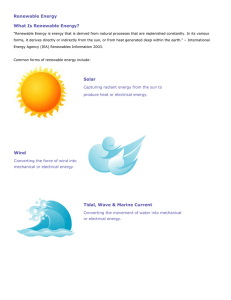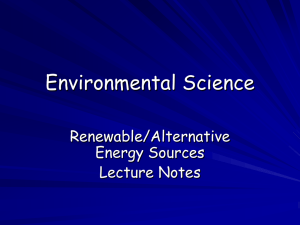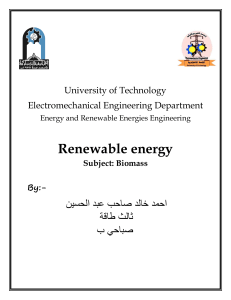ABSTRACT: It has been broadly accepted worldwide that global warming, indeed,...
advertisement
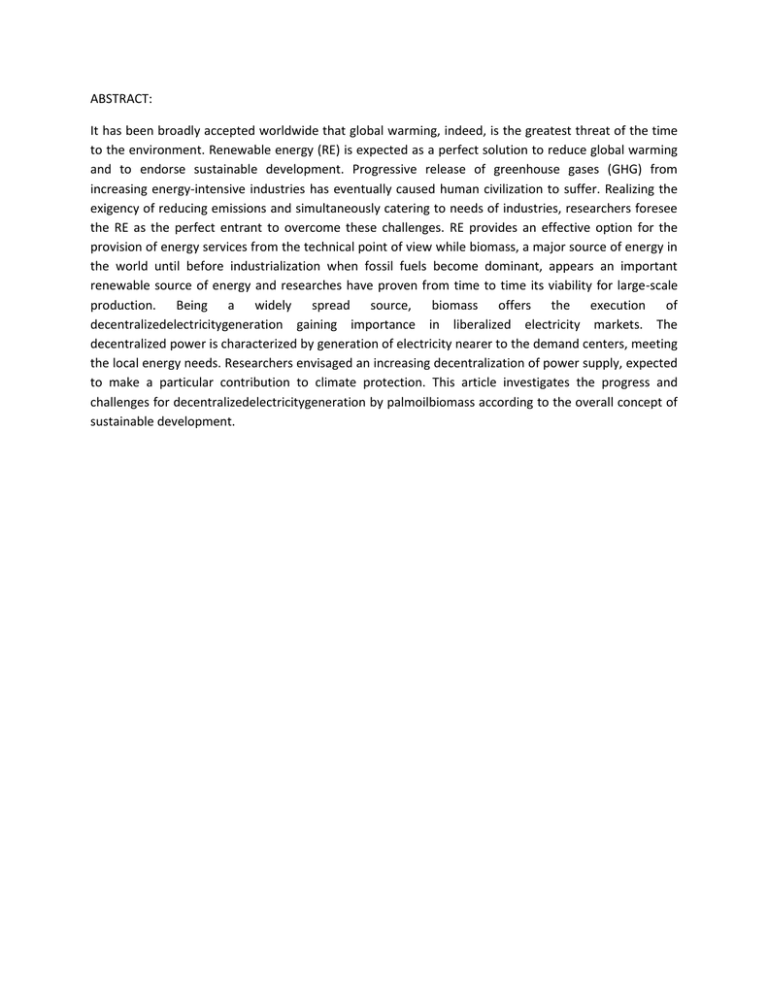
ABSTRACT: It has been broadly accepted worldwide that global warming, indeed, is the greatest threat of the time to the environment. Renewable energy (RE) is expected as a perfect solution to reduce global warming and to endorse sustainable development. Progressive release of greenhouse gases (GHG) from increasing energy-intensive industries has eventually caused human civilization to suffer. Realizing the exigency of reducing emissions and simultaneously catering to needs of industries, researchers foresee the RE as the perfect entrant to overcome these challenges. RE provides an effective option for the provision of energy services from the technical point of view while biomass, a major source of energy in the world until before industrialization when fossil fuels become dominant, appears an important renewable source of energy and researches have proven from time to time its viability for large-scale production. Being a widely spread source, biomass offers the execution of decentralizedelectricitygeneration gaining importance in liberalized electricity markets. The decentralized power is characterized by generation of electricity nearer to the demand centers, meeting the local energy needs. Researchers envisaged an increasing decentralization of power supply, expected to make a particular contribution to climate protection. This article investigates the progress and challenges for decentralizedelectricitygeneration by palmoilbiomass according to the overall concept of sustainable development.


